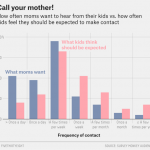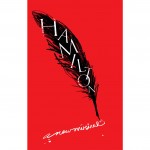Yesterday, I was blogging about abstinence education, shame, and horrible Homeric epithets. That may leave you wondering what kind of sex-ed my high school had. It turns out that my school had an abstinence-only policy, but, instead of damaging content, they went with no content. My semester of sex-ed consisted entirely of the teacher putting on episodes of Freaks and Geeks til the bell rang.
I reached to Much Ado about Nothing and A Song of Ice and Fire for my examples yesterday, and I should really tell you that Calah Alexander, who wrote the excellent post on abstinence metaphors that kicked all this off, has also written two great pieces on Much Ado: “So You Think You Understand Shakespeare” and “Live Unbruised and Love.” Here’s an excerpt from that last:
[T]his second Beatrice was something else. She was beauty and wit and charm all deeply streaked with pain. She was glittering, brilliant, fierce, and then when that scene came, she was terrible.
When she took a breath and said, “Kill Claudio”, the audience took a collective breath. In that appalled, appalling silence I saw grown adults grasping their heads in their hands, covering their faces, and shielding their eyes, as if they were subconsciously trying to block out what was happening.
And she said it with such a dreadful, icy self-possession that it was impossible to play off as heated emotion. Even if the later scene where she refuses to greet Benedick until he tells her that he has challenged Claudio didn’t convince the audience, the raw power of her delivering those two words was enough. She knew exactly what she was doing. She was using selfless love, freely offered, as a weapon against her enemy.
I’m really hopeful that Joss Whedon’s adaptation will keep the audience slightly uncomfortable and aware of some of the ugliness and cruelty lurking under the merry war of words in this play. In this interview, Joss talks about his choice to have Beatrice and Benedick be former lovers and only slightly disguised anger and hurt below their banter. He also shares Calah’s thoughts about Borachio and Margaret.
And while we’re talking about sexual ethics or romances that make us a little queasy, there’s been a spontaneous symposium going on at AmCon in response to Emily Witt’s essay “What Do You Desire?” for N+1. Nota bene: the essay has some extremely graphic sex and sexualized violence, and thus, so does the commentary. PEG has links to most of the AmCon responses here and adds some thoughts of his own.
I like it when people come together to argue in response to a specific prompt; it helps keep the discussion grounded. One thread of it has been talking about whether consent is sufficient or only necessary but not sufficient for an ethical sexual encounter. Rod Dreher added yesterday:
Well, sure, it’s much worse for Sally to chop off Harry’s arm mid-coitus without his consent than for her to do so with his consent. But it’s still pretty horrible and perverse for him to consent to such an act. Why is this so hard to say? And if you cannot say that it’s grossly immoral, even if consent is given, where do you draw the line? In Germany, prosecutors did not know how to deal with the case a decade ago of Arwin Meiwes, a cannibal who advertised for a victim willing to be slaughtered in a sexualized ritual. He found one, and slowly killed the guy, and ate him. Meiwes’ defense? His victim soberly consented to the whole thing, and he (Meiwes) could prove it by videotape. Eventually prosecutors won a conviction, but however they managed this legally, that doesn’t answer the moral question as to whether or not consent validates the gruesome act.
Since this discussion is getting a little dark, let me make it up to you in these last few takes. It turns out that a college friend of mine, in addition to being a delightful director when I worked under her as Miracle Max in an adaptation of The Princess Bride for elementary schoolers, is a kickass video editor. Julia Myers put together the below:
You can ooh and awe about more of her work at her website.
And if you still need an even simpler, purer love to recover from all this, can I interest you in a Dictionary of Numbers? As described by Randall Monroe:
A friend of mine, Glen Chiacchieri, has created a Chrome extension to help solve this problem: Dictionary of Numbers. It searches the text in your browser for quantities it understands and inserts contextual statements in brackets. It might turn the phrase “315 million people” into “315 million people [≈ the population of the United States]“.
As Glen explains, he once read an article about US wildfires which mentioned that the largest fire of the year had burned “300,000 acres.” This didn’t mean much to Glen:
I have no idea how much 300,000 acres is […] But we need to understand this number to answer the obvious question: how much of the United States was on fire? This is why I made Dictionary of Numbers.
Dictionary of Numbers helpfully informs me that 300,000 acres is about the area of LA or Hong Kong.
And, of all good things, I am perhaps most infatuated with The Bushwick Book Club. After reading the assigned book, people don’t just show up for wine and kibbitzing. The members write songs about the book of the month, and then perform them. A friend of mine wrote this brilliant number for their Sherlock Holmes night: “Sherlock is Home”
For more Quick Takes, visit Conversion Diary!













